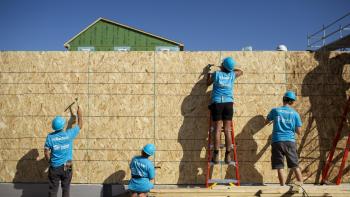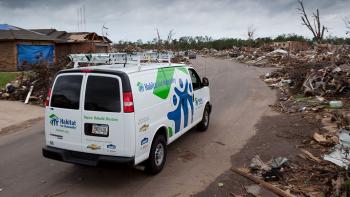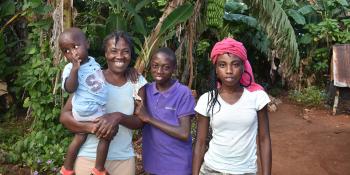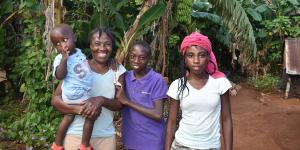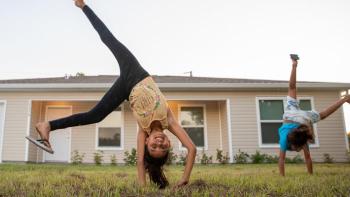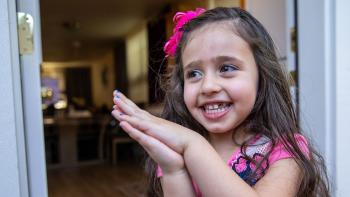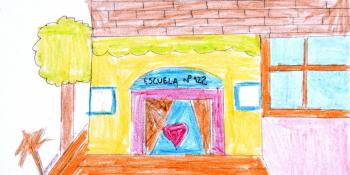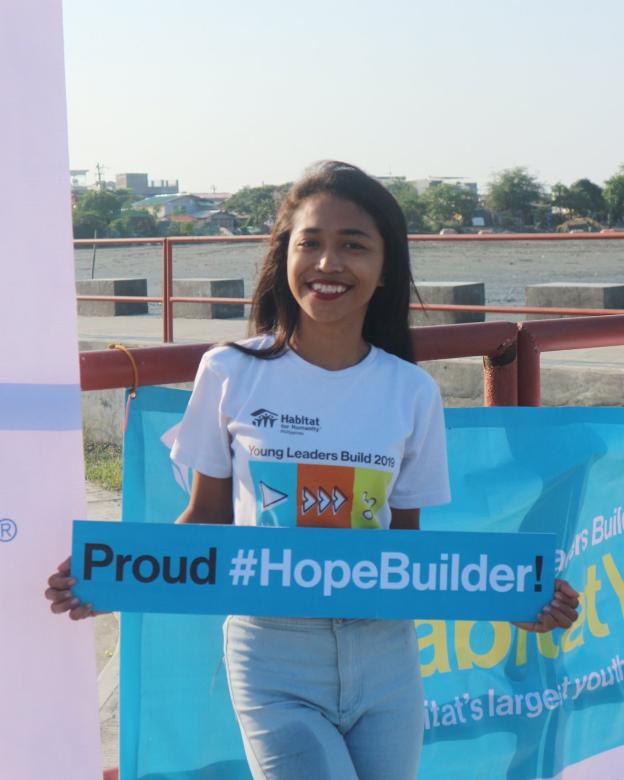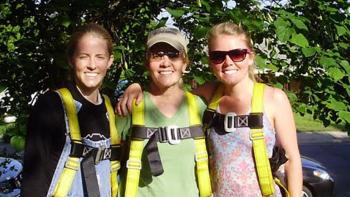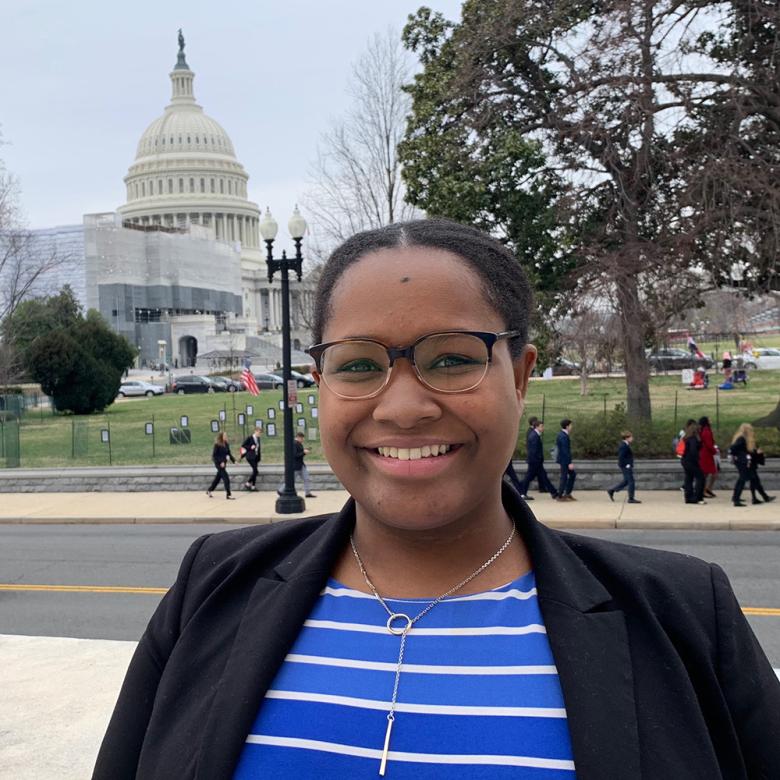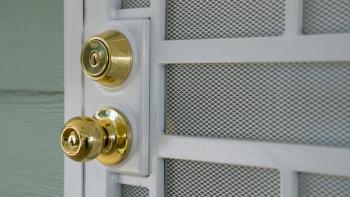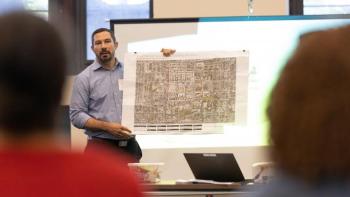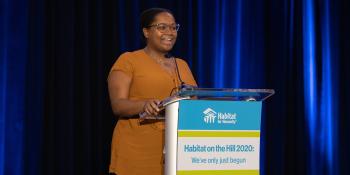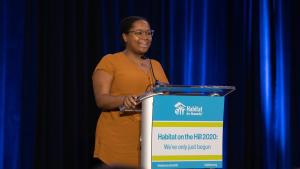Many hands (and smiles!) make light work
Nearly 20 years ago, Sarah began volunteering with Habitat while serving in the military. Now, as a volunteer for Habitat for Humanity of Hillsborough County, she’s known for her longstanding commitment to safe and affordable housing and her ability to inspires other community members to get involved.
Sarah Hart believes that a job well done starts with fun. She’s known for her ability to bring laughter and joy to the build site with a little friendly competition, like challenging a fellow volunteer to see who can lay sod the fastest. “You’re dirty, you’re hot, you’re throwing sod. So make fun, right?” says Sarah, a 42-year-old U.S. Air Force veteran who volunteers with Habitat for Humanity of Hillsborough County.
Nearly 20 years ago, Sarah began volunteering with Habitat while still serving in the military. Her longstanding commitment to safe and affordable housing has inspired others to get involved, and she always brings along a crowd of enthusiastic volunteers whenever she shows up to a build. “I have a lot of pride in what I do,” she says. “And then it makes me feel really good to be able to give back to somebody for a very good cause and be able to see something come of it.”
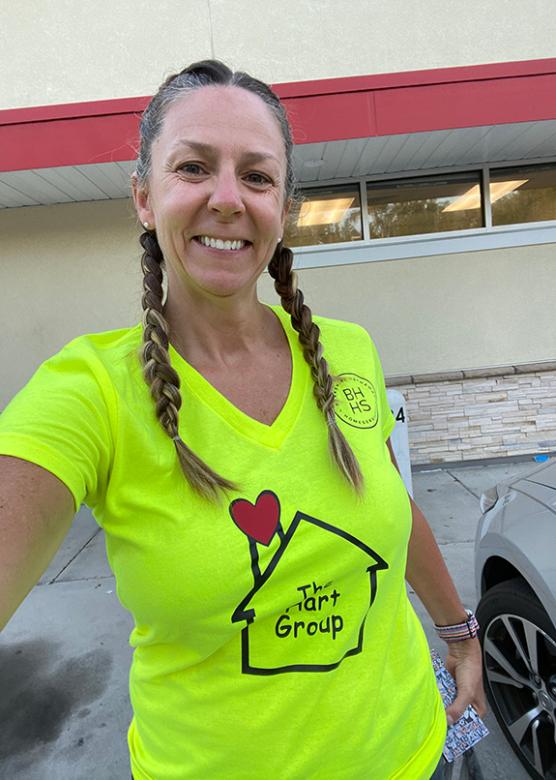
Sarah has invited colleagues from her real estate company to volunteer, coordinated a youth build where her 17-year-old son participated and brought together her friends from the military to help build homes. “It was just really fun to be able to do a build with my military friends, even after I’m retired,” Sarah says. “I still keep in contact with all of my buds, and so it is fun being with them in a different setting, not with our uniforms on, but building a house together.”
A few years ago, Sarah started an online group for newcomers where she regularly shares volunteer opportunities. “I have, I think, right now 5,600 people who are on that,” says Sarah, who encourages members to sign up for Habitat builds to get involved in their new community and meet new friends.
“Sarah is a vivacious volunteer who inspires all around her, and she shows her dedication to this affiliate not only by swinging a hammer and building houses, but also by taking on a key responsibility to spread the word of her passion to those from all walks of her life,” says Callie Lupica, Habitat Hillsborough County’s volunteer services director. “From posting on social media to actively planning and recruiting volunteers, she stands tall as a local leader with a huge smile on her face at all times.”
“Everyone deserves a decent place to live to create happy memories in a safe environment. It’s all about the memories to be honest,” says Sarah, who often pictures a family spending holidays and celebrating birthdays while she’s helping to build a home. One of her favorite memories of volunteering was working on a build for a fellow U.S. Air Force veteran who was the sole caregiver for his brother living with a rare form of cancer. “That was very moving. Obviously, him being military and me being military, and just seeing that he was doing it all in the name of his brother. That was amazing to me,” she says.

Many hands (and smiles!) make light work

